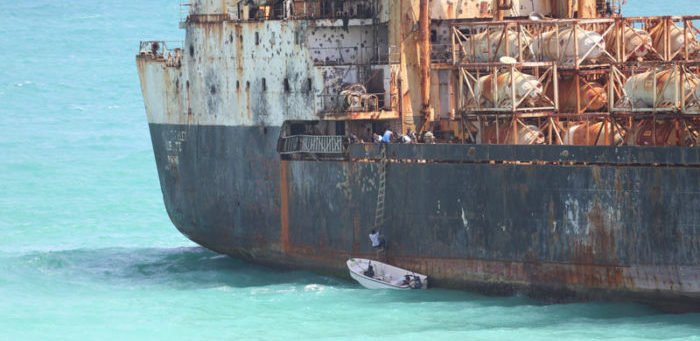Οn July 5 2011, a small boat with seven armed in the Gulf of Aden drew alongside the ‘Brillante Virtuoso’, a tanker with 140,000 tonnes of fuel oil. A few hours after the pirates boarded the ship, a fire took place, while the armed men went away and the crew abandoned ship. However, the owners of the ship and the insurers have different stories of what it may have happened, and the London high court will have to decide on the case.
‘Brillante Virtuoso’ was sailing in a dangerous area, some miles off Yemen. This is what makes the owners claim that the ship’s crew had practised safety drills and had established anti-piracy defences. Moreover, they were following orders to wait an unarmed security team to come to the ship, to protect it during its sail through the Gulf of Aden and the Indian Ocean.
[smlsubform prepend=”GET THE SAFETY4SEA IN YOUR INBOX!” showname=false emailtxt=”” emailholder=”Enter your email address” showsubmit=true submittxt=”Submit” jsthanks=false thankyou=”Thank you for subscribing to our mailing list”]
This is where it gets complicated as there are many reports regarding the men who arrived, claiming to be ‘the authorities’. Nevertheless, they managed to get into the ship and gather the crew at gunpoint. After that, they ordered the master and chief engineer to go to Somalia.
Based on court documents that the ship’s owners filed, a few hours later the engines stopped working. As the chief engineer was trying to find out the cause of why the engines stopped working, he managed to get away from the pirates. Because of this, the armed men detonated an explosive device, which led to a fire. Following this development, salvage teams arrived on scene to rescue the ship. However, the extend of the damage was great and the ship was sold for scrap.
According to the owners, the pirates were or used to be members of the Yemeni navy or coast guard.
On the other hand, the insurers have another story. They believe that this attack was staged by the owners of the ship. The specifically claim that the master, chief engineer and some other crew were participating in the attack. According to them, this fact would explain why a crew member was instructed to deploy a ladder for the group of armed and masked men, without considering that they may not be who they claimed to be.
In addition, Somali pirates do not usually set ships on fire and the explosion was deliberate to damage the ship, the defendants note.
Now, a trial will start on February 18 to decide what happened. Three years ago, in April 2016, the claimants had not presented certain documents, making the High Court in London throw out the original case against the insurers.






























































